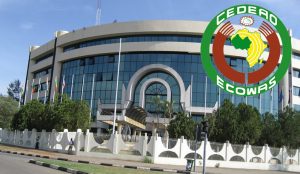Onome Amuge
The Economic Community of West African States (ECOWAS) has announced that the military governments of Burkina Faso, Mali, and Niger have officially withdrawn from the regional bloc, effective January 29, 2024.
Despite this exit, the ECOWAS authority stated that it will maintain its doors open for future collaboration with the three military-led nations.
As a response to the withdrawal of the three countries, the regional bloc called on all relevant authorities—both within and outside ECOWAS member states—to treat passports and identity cards bearing the ECOWAS logo, held by citizens of the departed nations, as valid travel and identification documents until further notice.
The ECOWAS authority also issued a directive to all member states, mandating that goods and services from Burkina Faso, Mali, and Niger should continue to enjoy the benefits of the ECOWAS Trade Liberalization Scheme (ETLS) and investment policy.
It also stated that citizens of these three countries should still enjoy the right of visa-free movement, residence, and establishment within the region, in accordance with the ECOWAS protocols, pending further communication from the bloc’s authority.
“Provide full support and cooperation to ECOWAS officials from the three countries in the course of their assignments for the Community. These arrangements will be in place until the full determination of the modalities of our future engagement with the three countries by the ECOWAS Authority of Heads of State and Government,” it stated further.
To this end, the ECOWAS Commission reiterated the importance of providing clarity and stability during this period of transition by establishing a dedicated structure to facilitate dialogue with each of the three countries concerning the procedures and frameworks for continued engagement with ECOWAS.
This message, it stated, is necessary to avoid confusion and disruption in the lives and businesses of the people during the transition period.









